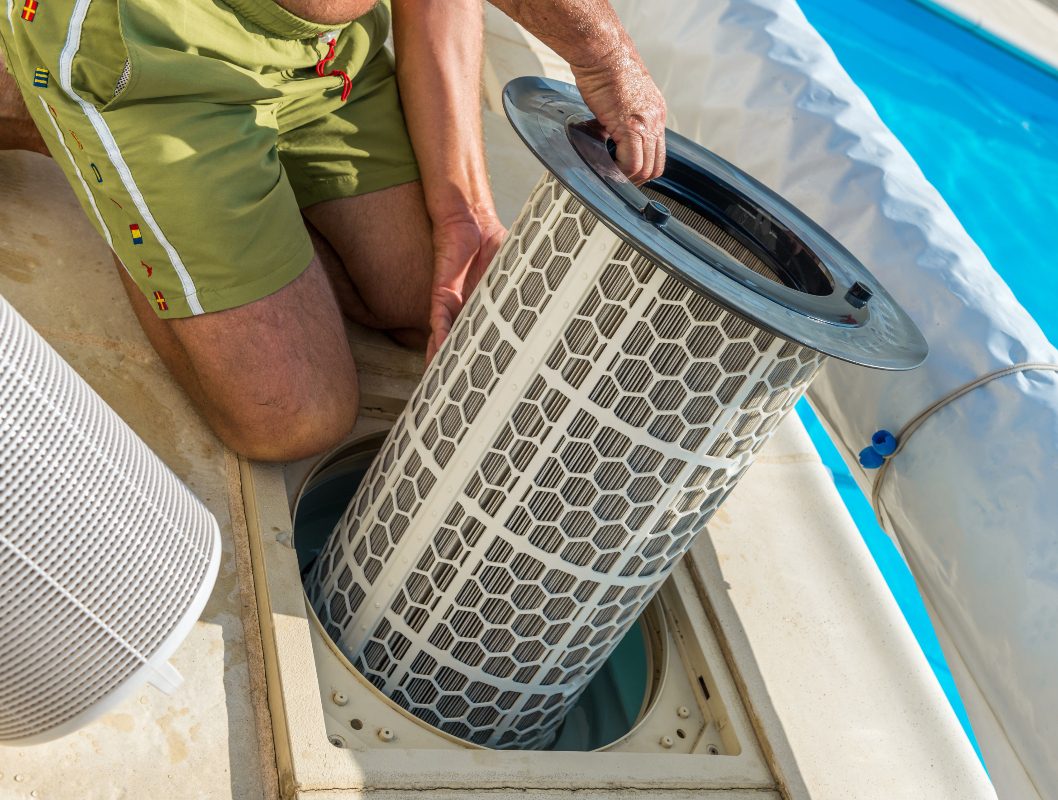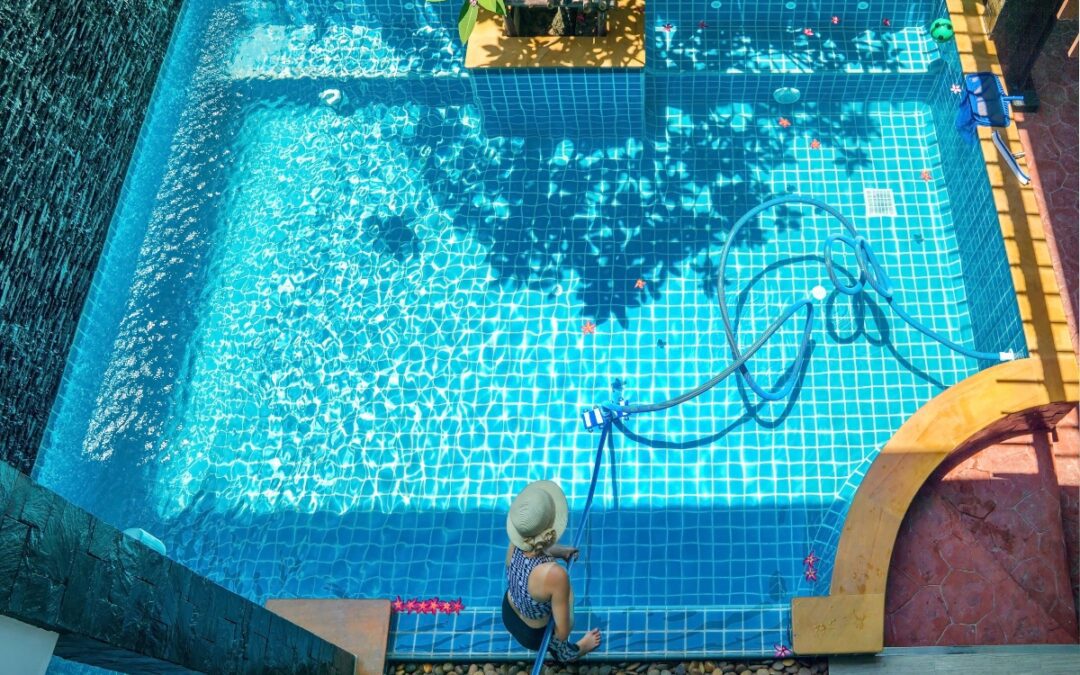The pool filter pressure gauge is one of the most important components of swimming pools, but it’s also often neglected. The filter pressure gauge tells you the pressure inside your filter tank, which affects how well your filter system works.
Your pool filter pressure gauge tells you how clean or dirty your pool is. The dirtier your pool is, the higher the pressure. But that doesn’t mean low pressures are good either.
Unfortunately, there’s no “standard” or ideal pressure since it differs based on the size of your filter and the horsepower and size of your pump.
To know your pool’s ideal filter pressure, you need to test out a clean filter first and take note of the psi count for when the pressure holds steady.
When you finally have your ideal pressure, it will be easier to diagnose your pool filter’s pressure problems if they arise. We break them down below.
The filter pressure is too high
As mentioned above, as your pool filter gets dirtier, the pressure increases. Slight increases in your pool filter’s pressure are normal—in fact, they’re a good sign. These increases mean your pool filter is working.
But if the pressure increase goes about 10 psi over your normal pool filter pressure, it’s a sign that your filter is too clogged and needs to be cleaned.
If, after cleaning, your pool’s filter pressure gauge still reads higher than normal, you might want to check for other problems, including:
- Closed, partially closed, or blocked return valves
- Lime deposits in the pool heater
- Broken parts inside the filter
Spikes in pool filter pressure can be dangerous, so it’s best to contact pool repair services to handle the matter for you.

The filter pressure is too low
If you have the opposite problem from above and the filter pressure is too low, this means your pool water isn’t reaching the filter.
A 5 psi or higher drop to your pool filter pressure indicated there’s a problem. Something might be blocking the flow of water into the pool pump. If this happens, look into the places before the filter, such as:
- Pump or skimmer baskets
- Pump impeller
- Filter valves
- Skimmers and drain valves
- Skimmer pipes
These parts of your pool’s filtration system may be clogged, closed, partially closed, or cracked.
The filter pressure gauge is not working
If your filter pressure gauge hasn’t gone higher or lower in days or if it has gone to zero, then it might be broken. There are a couple of causes for this, such as:
- The air relief valve might be clogged
- The gauge’s dials might be bent, warped, or rusted
If your pressure gauge is broken, you simply need to replace it. However, if the problem is in the air relief valve, you can unscrew the gauge, clean it out, and place it back.
Get in Touch with Pool Repair Experts
Whether it’s your pool filter pressure gauge that’s having a problem or the filters themselves, don’t hesitate to call for professional help.
City Wide Pool Services offers various pool repair and maintenance services for commercial and residential pools in Las Vegas. Contact us today to inquire about our services.

